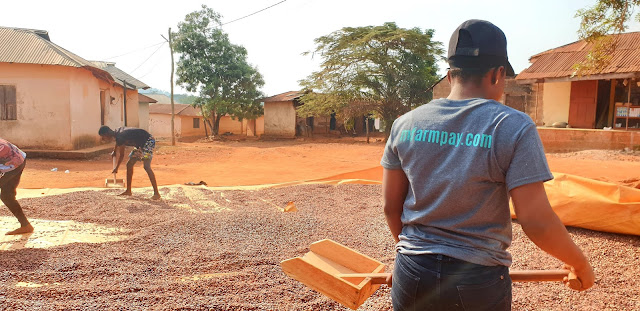Once the cocoa bean harvest is done, it goes through a process of fermentation. Fermenting the beans helps bring out the natural flavours of the beans and helps kill bacteria that might be living in the bean. The process of fermenting starts right after picking the beans. The pulp of the pods the beans come from is crucial to ferment correctly.
As you prepare to ferment the beans, you extract the beans and the pulp together and spread them out together evenly on mats or in special crates for fermenting. The pulp around the beans changes into alcohol while the beans ferment because of the yeast that enters the air and mixes with the heat of the sun or oven. The combination of beans and pulp produces alcohol that gradually ferments into acetic or lactic acid.
Depending on the region, the process of fermenting the drying cocoa beans might vary, but most follow a similar pattern. The beans are placed in a series of wooden boxes from four to eight days to let them ferment. Rotating the beans frequently ensures they are uniformly dry, and no soft spots occur. It also helps keep the airflow around the beans.
The boxes have holes drilled in the bottom to hell the alcohols produced by the beans during the fermentation process to leak out of the box. As the alcohol drips out, the bean rotation is critical to prevent them from molding or becoming mushy in juices left behind.
The process of fermenting the beans in boxes also requires you to rotate the beans out of boxes frequently. As alcohols release, while the holes let most of the alcohols and acids seep out, the beans require a clean, dry box to continue their preparation for becoming a quality product for chocolate makers.
As the beans ferment, other beans are drying. There are different ways to dry the beans, and each changes the flavour of the bean depending on the type of bean and the length of time it takes to dry them.
Share your thoughts with us. Email: Editor@agricinafrica.com
Agriculture in Africa Media


Richer flavor
ReplyDelete